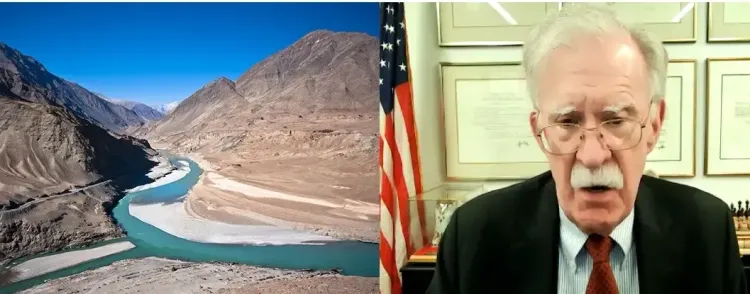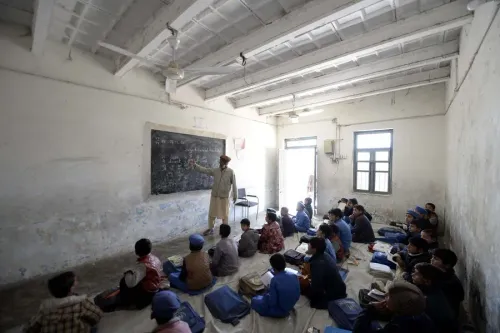Is the Indus Treaty Suspension a Wake-Up Call for Pakistan?

Synopsis
Key Takeaways
- India's suspension of the Indus Waters Treaty signals serious repercussions for Pakistan.
- John Bolton advocates for increased US-India cooperation in counterterrorism.
- The Pahalgam attack has intensified global scrutiny on Pakistan's role in terrorism.
- Pakistan's grey list status under FATF reflects its ongoing support for terror-related activities.
- The importance of effective governance in Pakistan to control terrorist factions is crucial.
New Delhi, May 3 (NationPress) India's choice to suspend the 1960 Indus Waters Treaty (IWT) following the April 22 Pahalgam terror attack should convey a potent warning to Pakistan that engaging in actions that jeopardize their neighbors results in repercussions, a prominent advisor to US President Donald Trump during his initial term stated in an exclusive interview with IANS on Saturday.
"I sincerely hope that this issue can be amicably settled between India and Pakistan. The matter of riparian rights in nations that are evidently reliant on this water supply for irrigation and other purposes is critical. If previously established arrangements become unfeasible, I believe all parties will ultimately suffer, especially those in the downstream regions. Thus, this should act as a warning to Pakistan that partaking in threatening activities against their neighboring countries brings about consequences," John Bolton, who served as the US National Security Advisor to President Trump from 2018 to 2019, remarked during his conversation with IANS.
India has asserted that Pakistan has revealed itself as a rogue state, perpetuating global terrorism and unsettling the entire region. The appalling Pahalgam terror attack, where 26 innocent civilians fell victim to four terrorists—two of whom were from Pakistan—has once again sparked international calls for accountability against the nation that fosters global terror.
"If their actions justify it, they should face consequences. The United States has never shied away from taking such measures. This situation, however, mainly revolves around the Pakistani government failing to exert effective control over its own territory, which provides India with a legitimate basis to take military action if it chooses to do so. This approach could also mitigate potential escalation, as it would not be perceived as an assault on Pakistan itself, but rather against the lawless factions operating within its borders," Bolton elaborated.
The former US Ambassador to the United Nations emphasized that, as the threat of terrorism intensifies in the region, both New Delhi and Washington need to enhance their counterterrorism collaboration.
"Undoubtedly, in the context of Kashmir, this has been a significant concern since Partition, alongside other terrorist incidents that India has faced in recent years across the nation. This is one of the reasons I believe that US-India cooperation on counterterrorism efforts has been justified in the past and could certainly benefit from deeper collaboration," Bolton added.
Pakistan has remained on the grey list of the Financial Action Task Force (FATF) for an extended period and continues to support, facilitate, and fund terrorist entities to operate and engage in various activities, particularly in India.
"Indeed, measures have been implemented. Pakistan has been listed on the watch list multiple times, and it should continue to be monitored closely if any new developments warrant stronger actions. The US maintains a firm stance against state-sponsored terrorism. We have experienced its effects ourselves, and this has been a consistent position," Bolton stated.









